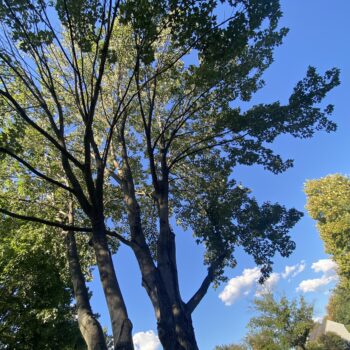
Encounters with “The Other”: A History and Possibilities
3. Robustly seeing the “other.”
It is possible, theoretically at least, for our experience of the “other”
to be grounded in both Power and Love;
where we experience our differences from the “other”
and our commonality with them,
our separateness from them
and our connectedness with them.
Robust seeing is a possibility,
yet it is a possibility too rarely realized,
and here may be why.
4. The Power reflex
Is it not true
that, when we encounter cultural behavior of the “other”
that is very different from our own –
dress, skin color, religion, language, emotionality, rites
and rituals –
our reflex response – without awareness or choice –
is to experience our difference from the “others”
more than our commonality with them?
Our separateness from them
more than our connectedness with them?
This is not a question of what is right or wrong,
moral or immoral,
Liberal or Conservative.
It is a question about our reflex response
to the different cultural behavior of the “other.”
5. Power without Love
The reflex preference for Power,
when it happens,
can easily set off a process in which
Power gradually increases its predominance over Love,
eventually overcoming it
to the point at which Love is gone,
and there is no experience of commonality or
connectedness
with the “other.”
And here is how that happens.
- Posted by Barry Oshry
- On September 27, 2018
- 0 Comment


Leave Reply